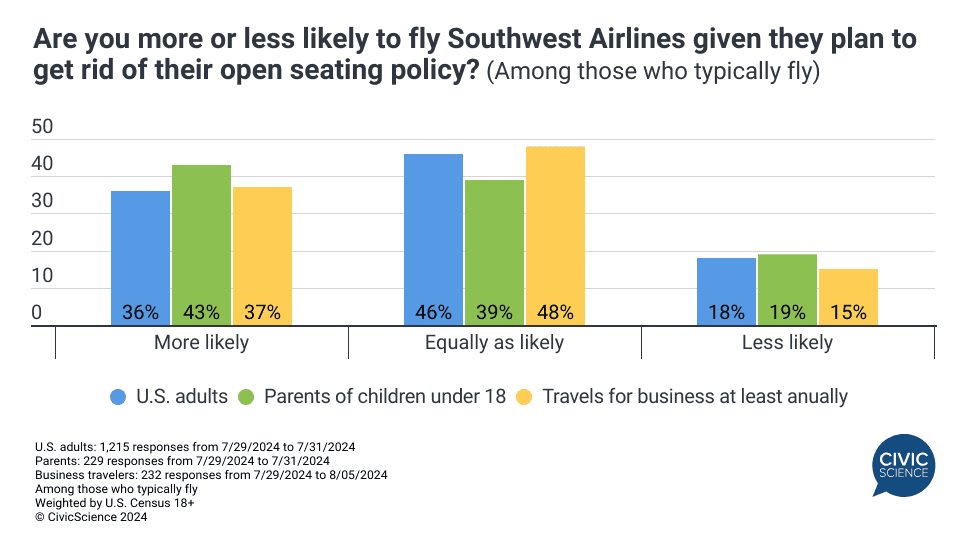This is just a glimpse of the insights available to CivicScience clients. Want to see the full picture? Let’s talk.
Last week brought a significant change in the airline industry. Southwest Airlines announced that it is getting rid of their open seating policy after 53 years. While change isn’t always easily embraced, CivicScience data following the assigned seating announcement suggest this could be a favorable move for the airline – 36% of those who fly say they’re now more likely to fly with Southwest. Conversely, 18% indicate they’re less likely to fly Southwest following the change.
The change is also well received by families, who previously faced the risk of being separated under the open seating model. Data show 43% of parents with children under 18 are now more inclined to fly with Southwest. Consumers who travel at least once a year for business are also more open to flying the airline following the end of open seating.
Additionally, business travelers who fly at least once a year are also more likely to prefer Southwest.

Let Us Know: Are you more likely or less likely to fly Southwest now that they are ending their open seating policy?
In general, assigned seating policies are far more popular than open seating policies, including among 80% of Southwest passengers. However, Spirit and Allegiant passengers are the most likely to favor an open seating policy, alongside Southwest (20%). Consumers planning to fly on JetBlue are the most likely to favor assigned seating.

While Southwest passengers will soon have less stress in securing the seat they want, other key stressors persist. Leading causes of stress include airport procedures (like check-in and security), and the risk of flight delays or cancellations. In contrast, booking tickets, traveling to the airport, and flying in general are much less likely sources of stress.

Take Our Poll: Which airline company do you prefer?
Southwest Airlines’ shift away from open seating marks a fundamental change for the airline but potentially enhances its appeal to a broader audience. While some loyalists may be upset by the change, it aligns with the majority of consumers who prefer assigned seating, and could be a win in attracting families and business travelers.








